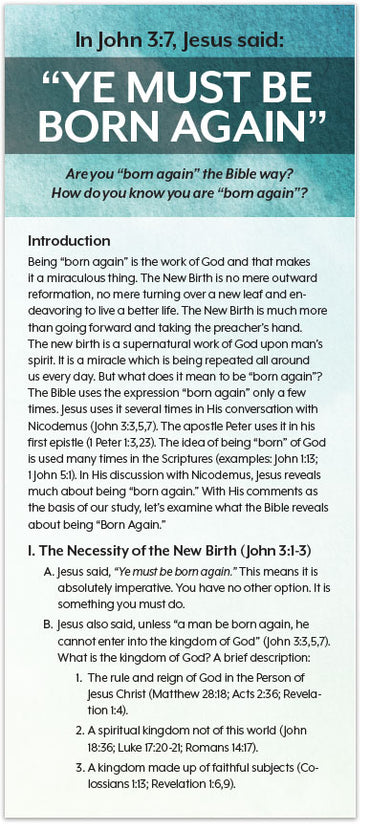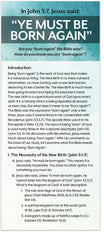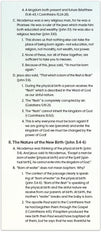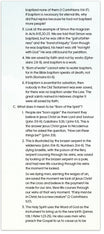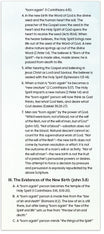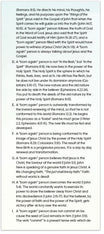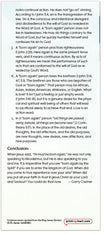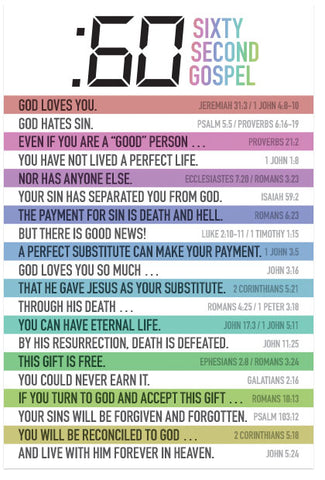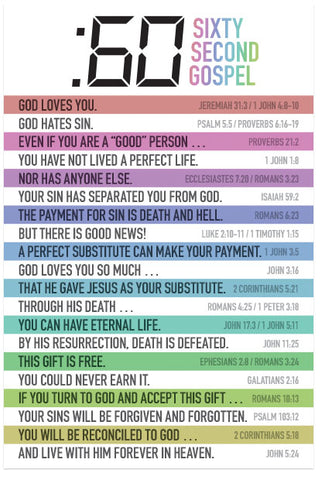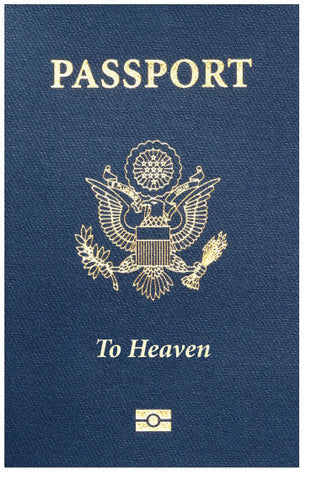Ye Must Be Born Again
Special-Order Folded Flyer Tract
 NOTE: This item is custom-printed to order (click for more details).
NOTE: This item is custom-printed to order (click for more details).
This tract is from our print-on-demand library, and is not kept in stock. Select the options below, and we will custom-print a batch just for you. Because this item is custom-printed, you can add your custom imprint to the back page at no extra cost.
- Estimated shipping date: Thursday, March 26 (Click for more details)
- SKU:
- Discounts: Discount coupons do not apply to this item
- Format: Folded Flyer Tract
- Size: 3.66 x 8.5 inches
- Pages: 6
- Imprinting: Available with 5 lines of custom text
- Version: KJV
- Returns: Because this item is custom-printed to order, it cannot be returned.
Show all item details
The full text of this flyer tract is shown below in the KJV version. (Do you want to print this tract in a different version than the one listed? Contact us and let us know what you're looking for—we may be able to create the alternate version for you at no charge.)
In John 3:7, Jesus said: “Ye Must be Born Again”
Are you “born again” the Bible way?
How do you know you are “born again”?
Introduction
Being “born again” is the work of God and that makes it a miraculous thing. The New Birth is no mere outward reformation, no mere turning over a new leaf and endeavoring to live a better life. The New Birth is much more than going forward and taking the preacher’s hand. The new birth is a supernatural work of God upon man’s spirit. It is a miracle which is being repeated all around us every day. But what does it mean to be “born again”? The Bible uses the expression “born again” only a few times. Jesus uses it several times in His conversation with Nicodemus (John 3:3,5,7). The apostle Peter uses it in his first epistle (1 Peter 1:3,23). The idea of being “born” of God is used many times in the Scriptures (examples: John 1:13; 1 John 5:1). In His discussion with Nicodemus, Jesus reveals much about being “born again.” With His comments as the basis of our study, let’s examine what the Bible reveals about being “Born Again.”
I. The Necessity of the New Birth (John 3:1-3)
A. Jesus said, “Ye must be born again.” This means it is absolutely imperative. You have no other option. It is something you must do.
B. Jesus also said, unless “a man be born again, he cannot enter into the kingdom of God” (John 3:3,5,7). What is the kingdom of God? A brief description:
C. Nicodemus was a very religious man, for he was a Pharisee. He was a ruler of the Jews which made him both educated and wealthy (John 3:1). He was also a religious teacher (John 3:10).
D. Jesus also said, “That which is born of the flesh is flesh” (John 3:6).
II. The Nature of the New Birth (John 3:4-6)
A. Nicodemus was thinking of the physical birth (John 3:4). And Jesus said to Nicodemus, “Except a man be born of water [physical birth] and of the Spirit [spiritual birth], he cannot enter into the kingdom of God.”
B. “Born of water” does not mean baptism. Why?
C. What does it mean to be “Born of the Spirit”?
III. The Evidences of the New Birth (John 3:8)
A. A “born again” person becomes the temple of the Holy Spirit (1 Corinthians 3:16, 6:19-20).
B. A “born again” person is made free from the “law of sin and death” (Romans 8:2). The law of sin is still there, but after being “born again” the “law of the Spirit and life” sets us free from “the law of sin and death.”
C. A “born again” person minds “the things of the Spirit” (Romans 8:5). He directs his mind, his thoughts, his feelings, and his purposes upon the “things of the Spirit.” Jesus said in the Gospel of John that when the Spirit comes he will guide us into the truth (John 14:17, 16:13). A “born again” person follows the truth of God in the Word of God. Jesus also said that the Spirit of God would testify of Him (John 15:26-27), and a “born again” person filled with the Spirit would have power to witness of Jesus Christ (Acts 1:8). A “born again” person is always talking about Jesus and the Gospel.
D. A “born again” person is not “in the flesh,” but “in the Spirit” (Romans 8:9). He now lives in the power of the Holy Spirit. The Holy Spirit is the sphere in which he thinks, feels, lives, and acts. He still has the flesh, but he does not live under its dominion anymore (Galatians 5:16-17). The new nature and the old nature live side by side in the believer (Ephesians 4:22-24). You put to death the deeds of the old nature by the power of the Holy Spirit (Romans 8:13).
E. A “born again” person is outwardly transformed by the inward renewing of the mind, so that he is not conformed to this world (Romans 12:2). He begins this process as a “babe” and he must grow (1 Peter 2:2; Ephesians 4:13-15). The new life must be fed and developed.
F. A “born again” person is being conformed to the image of Jesus Christ by the power of the Holy Spirit (Romans 8:29; Colossians 3:10). The result of the New Birth is a progressive process. It is a day by day renewal and transformation.
G. A “born again” person believes that Jesus is the Christ, the Saviour of the world (1 John 5:1). John here is speaking of a genuine faith in Jesus Christ. A life-changing faith. “The just shall live by faith.” Faith without works is dead!
H. A “born again” person overcomes the world (1 John 5:4). The world constantly wants to exercise its power to draw the believer away from Christ and into disobedience (1 John 2:15-17). But the believer, by the power of faith and the power of the Spirit, gets victory after victory over the world.
I. A “born again” person does not commit sin because the seed of God remains in him (1 John 3:9). The verb “commit” is a present tense verb which denotes continual action. He does not “go on” sinning. According to 1 John 3:4, sin is the transgression of the law. Sin is the conscious and intentional disregard and disobedience to the will of God as revealed in the Word of God. A “born again” person does not live in lawlessness. He may do things contrary to the Word of God, but he quickly humbles himself and confesses his sin to God.
J. A “born again” person practices righteousness (1 John 2:29). Here again is the same present tense verb, and it means continuous action. By acts of righteousness we mean the performance of such acts that are conformed to the will of God as revealed by God’s Word.
K. A “born again” person loves the brethren (1 John 3:14, 4:7, 5:1). The brethren are those who are begotten of God or “born again.” That person may be African, Asian, Indian, American, Afrikaans, or English. What is love? It isn’t just a feeling or just empty words (1 John 3:16-18), but it is a genuine desire for the physical and spiritual well-being of others that will lead to sacrificial deeds to achieve that end. Love is an action word.
L. In a “born again” person “old things are passed away; behold, all things are become new” (2 Corinthians 5:17). In the place of the old desires, the old thoughts, the old affections, and the old purposes, are new thoughts, new desires, new affections, and new purposes.
Conclusion:
When Jesus said, “Ye must be born again,” He was not only speaking to Nicodemus, but He is also speaking to you and me. It is imperative that you are “born again by the Spirit” if you are to enter the kingdom of God. When did you come to true repentance over your sins? When did you put all your faith in trust in Jesus Christ as your Lord and Saviour? You could do that now.
— Garry Castner

